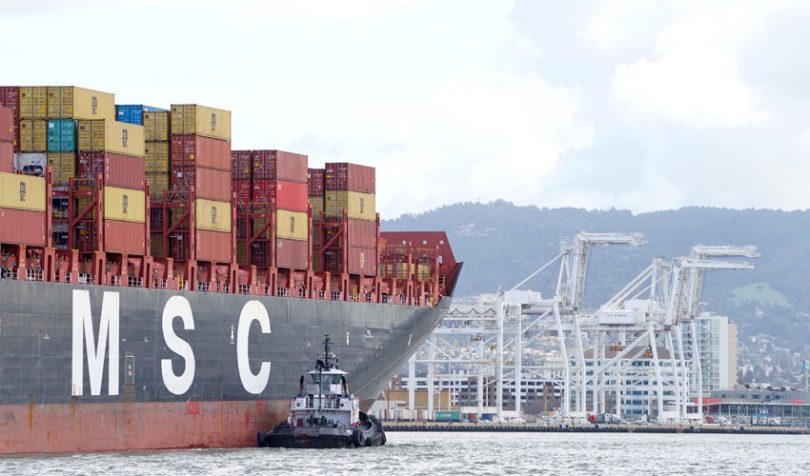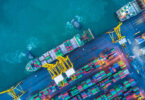Today Mediterranean Shipping Company (MSC) announced it has adopted the electronic bill of lading (eBL) solution WAVE BL. The production announcement enables all MSC customers to use WAVE BL and follows a successful pilot. Together the partners have created a user friendly platform so that shippers don’t have to change their processes.
“MSC has chosen WAVE BL because it is the only solution that mirrors the traditional paper-based process that the shipping and cargo transportation industry is used to,” says André Simha, Global Chief Digital & Information Officer at MSC. “It provides a digital alternative to all the possibilities available with traditional print documents, just much faster and more secure.”
According to the Maritime and Port Authority (MPA) of Singapore, despite COVID-19, only 0.1% of bills of lading are issued electronically. Given bills of lading represent ownership of the container, the sender usually couriers the document to the buyer to claim the container on arrival. With the pandemic, this is problematic, and it’s also open to fraud because it’s paper-based.
Instead, with electronic bills of lading, the electronic originals can be digitally encrypted and signed, ensuring that only the valid recipient can receive it peer-to-peer.
MSC is part of the new Digital Container Shipping Association (DCSA), which has been developing open source standards for eBLs. According to its research, it’s possible to save more than $4 billion a year if 50% of the industry adopts eBLs by 2030
The container shipper has been exploring blockchain for some time. It’s a member of IBM and Maersk’s TradeLens. Last year it participated in a trial at the Port of Rotterdam using blockchain tokens for releasing cargo. This was a bid to digitize the process, make it quicker, safer from fraud, and touch-free during the pandemic.
Meanwhile, it’s been a long road for WAVE BL, which is one of the very first enterprise blockchain applications. Back in 2016, it made it into the Barclays Techstars accelerator. One of its first partners was Israel’s ZIM containers which started piloting the solution in 2017. Last year dairy processor Fonterra worked with Wave and HSBC for eBLs. It’s also integrated with the Contour trade finance platform.
Wave is not the only eBL solution. There are non-blockchain offerings from Bolero and essDOCS. Enterprise blockchain firm R3 acquired Singapore’s E-Title Authority and is starting to beta test the Corda eBL. CargoX also has a blockchain solution.
Apart from the DCSA, there are multiple standards initiatives. This includes one from the International Port Community Systems Association (IPCSA) and the Interwork Alliance, which focuses on tokenization.
One of the reasons for the interest in tokenizing bills of lading is because they are used in trade finance.
Meanwhile, Singapore’s MPA has launched a call for proposals to develop eBL solutions and encourage industry adoption through consortia.






